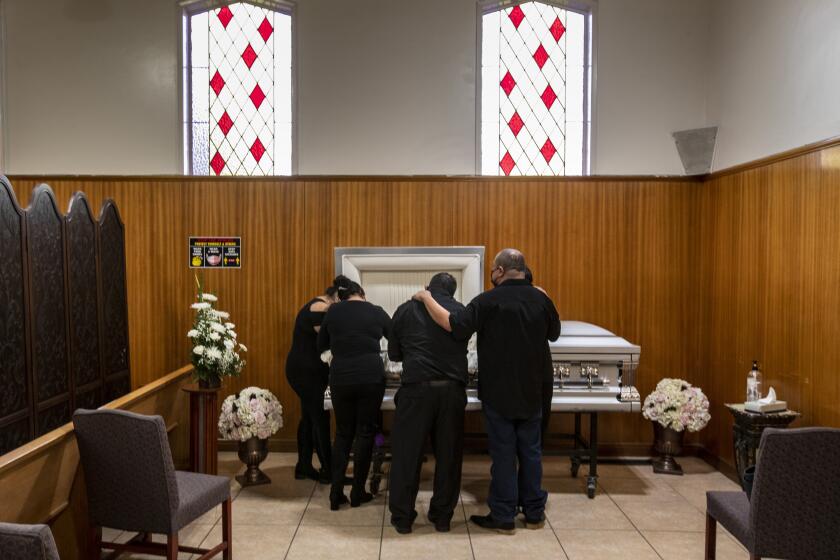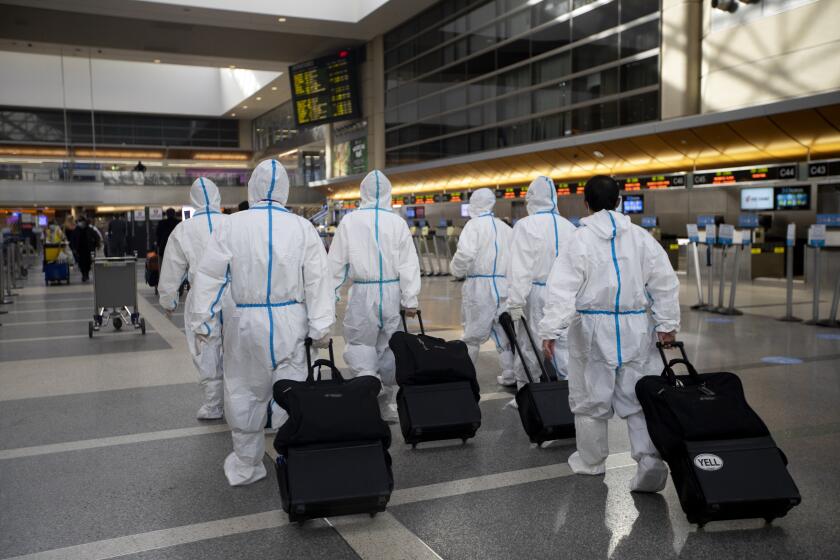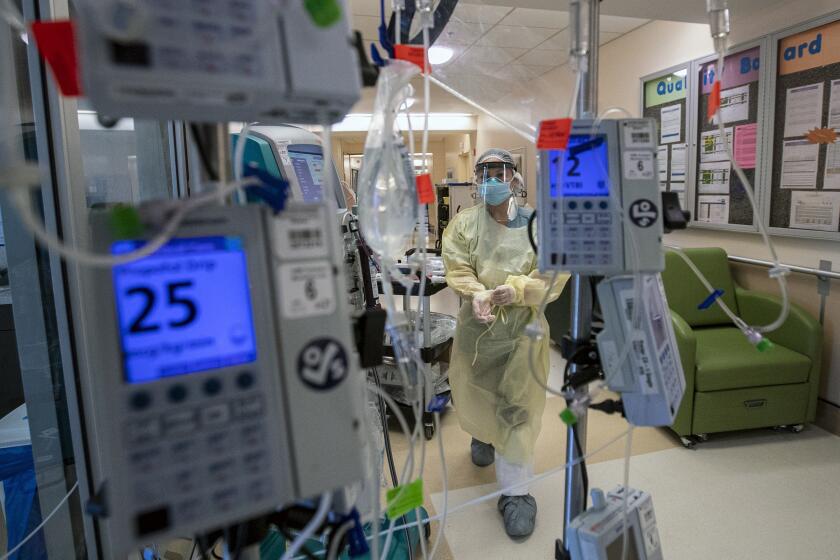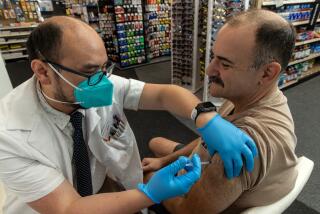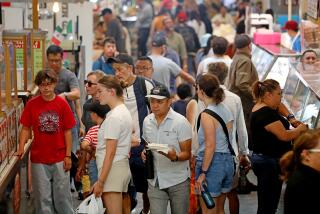L.A. County’s new mandatory quarantine order for travelers is now official. Here’s how it works
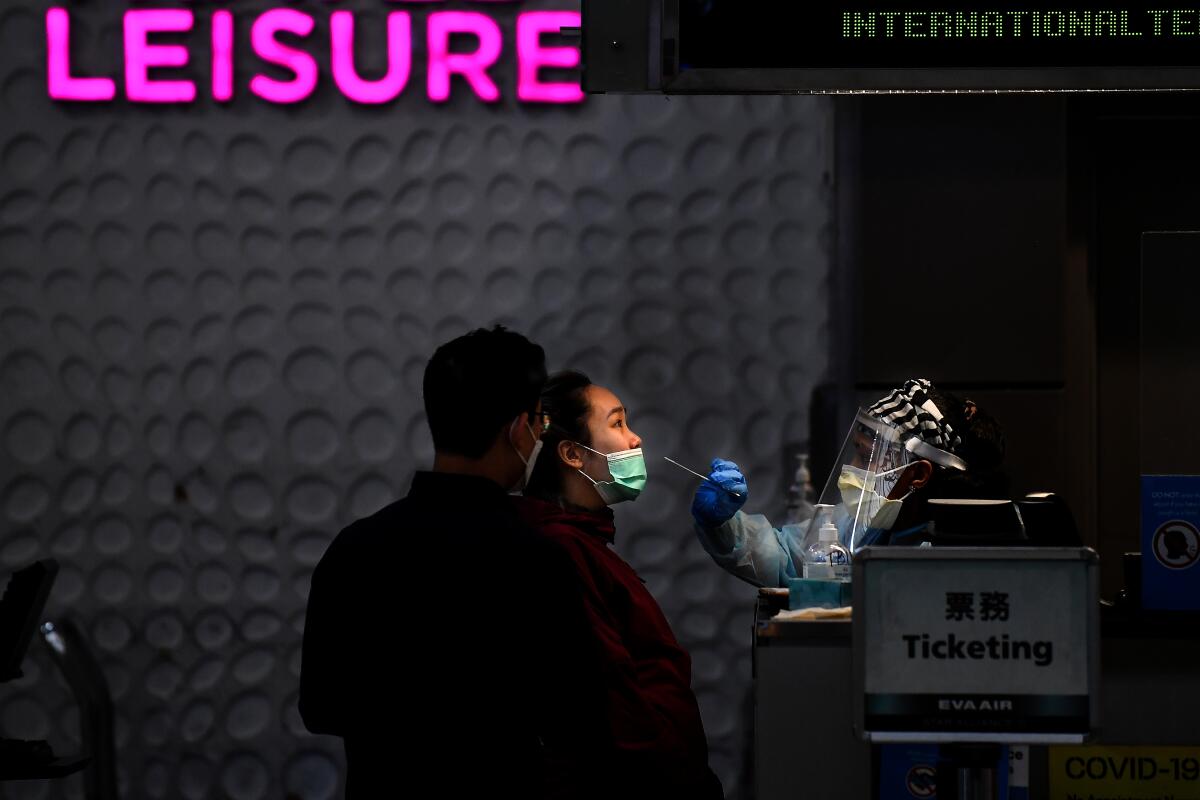
Los Angeles County has become the latest county in California to impose a mandatory quarantine on long-distance travelers.
At least two other counties — Santa Clara and San Francisco — have similar mandatory orders. The California Department of Public Health on Nov. 13 issued an advisory urging Californians to stay home or in their region and avoid nonessential travel, including for tourism or recreation.
The regional stay-at-home order prohibits hotels and other lodging companies from offering rooms to people visiting for tourism and leisure.
The moves are part of a desperate effort to slow the spread of COVID-19, which is pushing hospitals to the breaking point. L.A. County has seen an unprecedented surge in both cases and deaths since November and has emerged as one of the nation’s leading hot spots.
Travel at airports picked up dramatically during the Thanksgiving and Christmas holidays, and officials fear that could cause COVID-19 to spread even more.
Workplaces remain an area of growing concern, amid new outbreaks at retail establishments as well as other businesses deemed essential.
So will the quarantine work? Here’s what we know:
Who it affects: Anyone traveling to L.A. County for leisure or recreation from anywhere outside the Southern California region. That includes people who come to L.A. for a nonessential reason, including to visit family members.
It also includes L.A. County residents who have left the region and are returning home.
The Southern California region includes Imperial, Inyo, Los Angeles, Mono, Orange, Riverside, San Bernardino, San Diego, San Luis Obispo, Santa Barbara and Ventura counties.
What they need to do: Quarantine themselves for 10 days. That means they need to stay at home or find other lodging and avoid contact with others, meaning they should not go out to grocery stores or restaurants but instead have food delivered to them.
If you traveled over the holidays, you need to quarantine at home when you get back. Here’s what that means.
Who is exempted: Licensed healthcare professionals, those working for essential government or infrastructure reasons, people transiting through L.A. County and not staying overnight, people who are members of professional or collegiate sports teams and personnel of a film or media production operating within the county, among others.
How long will the mandatory quarantine order remain in effect? Indefinitely. The county did not give a target date for when it would be modified or rescinded.
“We already saw what happened after all of the travel and the intermingling across the Thanksgiving holiday,” said L.A. County Public Health Director Barbara Ferrer. “The possibilities are far too great that, in addition to the memories and gifts you came home with, you may have also brought the coronavirus.
“You may not show symptoms yet. You may never show symptoms. But that doesn’t mean you’re not infected with this virus. The best way to ensure you don’t infect others is to remain home for the COVID-19 incubation period. And this means for a minimum of 10 days.”
A negative test result on Day 3, Day 5 or Day 7 doesn’t mean a person can’t become positive on Day 8, Day 9 or Day 10, Ferrer said.
A negative test early in the quarantine period may simply not detect low levels of virus in the body that will replicate itself to higher levels later.
“That’s why we’re asking you to remain home for the entire 10 days,” Ferrer said.
One of the largest hospitals in San Bernardino County ran out of ICU space two weeks ago amid an onslaught of coronavirus cases across Southern California.
Those who test positive and used a home testing kit should notify all their close contacts, Ferrer said.
“That’s everyone you’ve been in contact with for 15 minutes or longer over a 24-hour period from two days before you tested positive until your last time you expose people to yourself. And you need to tell them that they should quarantine for 10 days,” Ferrer said.
“If you have tested positive and you need help isolating or notifying your close contacts, please call us at 1 (833) 540-0473 and a public health specialist will help connect you to resources,” Ferrer said.
In the Bay Area, there have been questions about how aggressively officials will enforce the rules. The quarantine order is enforceable by law in San Francisco; lack of compliance is a misdemeanor punishable by fine or imprisonment. However, officials in San Francisco told The Times last month that they were focusing on education over enforcement.
“We do not want to use a criminal justice approach for a public health challenge,” a spokesman for San Francisco’s Public Health Department said.
More to Read
Sign up for Essential California
The most important California stories and recommendations in your inbox every morning.
You may occasionally receive promotional content from the Los Angeles Times.
